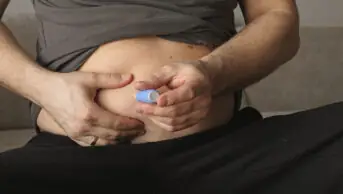
Shutterstock.com
National patient group direction (PGD) templates for the prescribing of antimicrobial medicines should be developed to save money, boost standards and help in the battle against resistance, according to the NHS Specialist Pharmacy Service (SPS).
The recommendation follows its review of hospital trusts’ use of PGDs and antimicrobial medicines, which found that some trusts were using multiple PGDs written for the same condition.
It predicted that if this duplication was ironed out, then the 199 PDGs it considered as part of its trust survey, could be reduced to just 33.
The SPS found wide variation in the quality of PGDs and how they were used by the 22 trusts which responded to its survey.
One acute trust, for example, revealed that it refused to use PGDs for prescribing antimicrobial medicine on the grounds that it got in the way of offering individual patient care, and reviews of medicine and prescribing decisions.
In contrast, the SPS found that another trust was relying on a single PGD for the supply and administration of “sexual health medication” to treat multiple clinical conditions, which it said was in breach of national guidelines.
The SPS report said: “In line with principles of the Carter Review, there is an opportunity to improve both NHS efficiency and productivity by standardising the development and distribution of PGDs across NHS organisations.
“This would create capacity within NHS organisations for pharmacists and pharmacy technicians to spend more time on patient-facing activities.
“Standardisation would help to address the known issue around the lack of access to specialist antimicrobial pharmacy advice … [and] also reduce unwarranted variation in the quality of PGDs.”
It recommended the creation of national PDG templates for a limited range of common conditions. A pilot, it suggested, could be set up to test templates for common infections in primary care and sexual health services.
The SPS surveyed 44 different trusts in England about their use of PGDs and antimicrobial medicines; 22 trusts responded.
The most common PGDs for antimicrobial prescribing were for urinary tract infections, cellulitis, treatment and prophylaxis of animal and human bites, sexually transmitted and respiratory infections.


